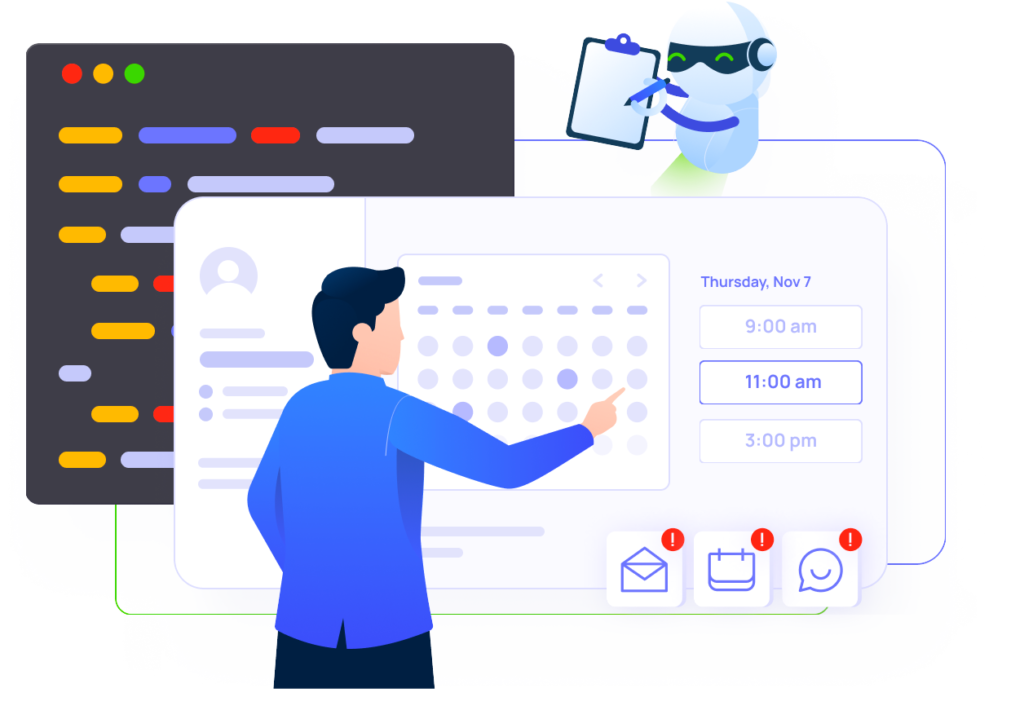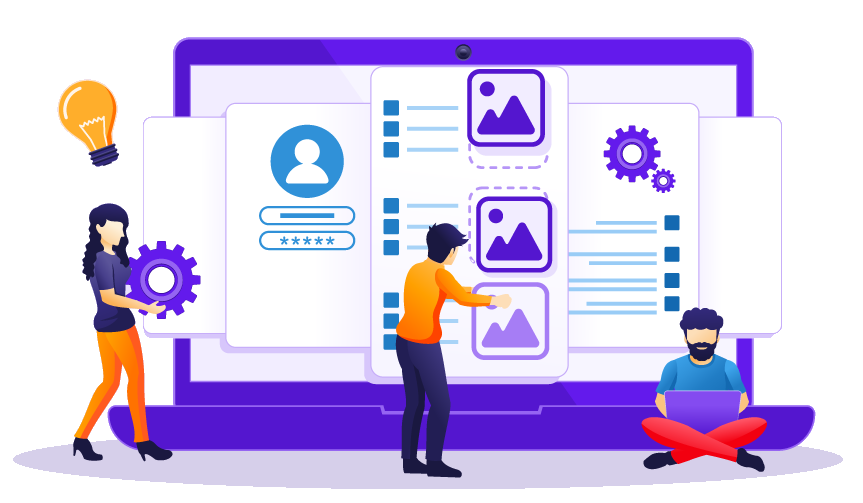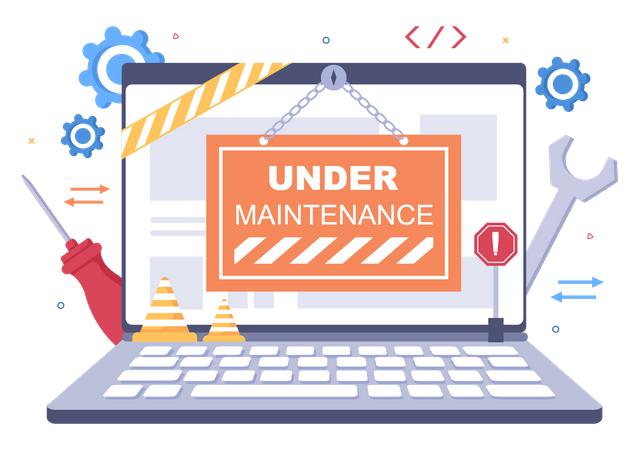Patient Management Systems
Website Development - Appointment Systems - Patient Management Systems
In the world of dentistry, where precision meets care, managing patient details and appointments efficiently is paramount.
Enter the Patient Management Systems on dental websites—a game-changer that’s revolutionizing how dental clinics operate.
These systems are like the control centers of dental clinics, seamlessly organizing patient information, appointment schedules, treatment plans, and much more.
No longer do dentists have to sift through heaps of paperwork or rely on memory for patient details. With just a few clicks, everything is at their fingertips, ensuring that patients receive timely and personalized care.
For patients, this means an end to long waits, confusing appointment bookings, and the hassle of manually tracking their dental history.
As we delve deeper into this topic, we’ll uncover the magic of these systems, revealing how they’re making dental visits smoother and more efficient for everyone involved.
Whether you’re a dentist aiming for streamlined operations or a patient seeking hassle-free appointments, understanding the power of Patient Management Systems is the first step to a brighter dental future.
Introduction
In the digital age, where technology continually enhances healthcare experiences, dental clinics are not left behind. A significant innovation that’s making a profound impact in the dental world is the Patient Management System. Let’s dive into understanding this system and its significance for dental websites.
What is a Patient Management System?
A Patient Management System (PMS) is a specialized software designed to manage day-to-day operations of dental clinics. It’s not just about storing patient details; it’s a comprehensive tool that handles various aspects of patient care.
From the moment a patient books an appointment to the time they complete their treatment, the PMS tracks and manages every step. It encompasses features like appointment scheduling, treatment planning, billing, and even patient feedback.
In essence, it’s the digital backbone of a dental clinic, ensuring smooth operations and efficient patient care.
Why is it Important for Dental Websites?
-
Centralized Data Management:
With a PMS integrated into a dental website, clinics can have all patient data centralized in one place. This eliminates the need for physical files, reduces errors, and ensures that patient histories are easily accessible. -
Enhanced Patient Experience:
Patients can book, reschedule, or cancel appointments online, view their treatment plans, and even make payments. This self-service capability enhances their overall experience, making interactions with the clinic smooth and hassle-free. -
Operational Efficiency:
For the dental clinic staff, a PMS means reduced manual work. Automated appointment reminders, billing integrations, and treatment plan updates ensure that the clinic runs like a well-oiled machine. -
Data Security:
Patient data is sensitive. A PMS on a dental website ensures that this data is stored securely, with encryption and other safety measures in place to protect against breaches. -
Informed Decision Making:
With all data stored systematically, dentists can generate reports, analyze patient trends, and make informed decisions about treatments, schedules, and even marketing strategies.
The Heart of a Dental Clinic: Patient Management Systems
In the intricate world of dental care, where every patient’s need is unique and every appointment is crucial, the role of a Patient Management System (PMS) cannot be overstated.
Often described as the heart of a dental clinic, these systems ensure that the myriad of tasks and information flow seamlessly, providing both the clinic and the patients with an experience that’s efficient and hassle-free.
How These Systems Keep Everything Organized
A dental clinic is a hub of numerous activities. From patient check-ins to treatment procedures, billing, and follow-ups, there’s a lot that goes on. Here’s how a PMS brings order to this chaos:
-
Centralized Data Storage: All patient information, from basic contact details to intricate dental histories, is stored in one place. This not only reduces the risk of data loss but also ensures that any required information is readily available.
-
Streamlined Appointments: The PMS automatically updates appointment slots based on bookings, cancellations, and reschedules, ensuring that there are no overlaps or gaps.
-
Treatment Tracking: Every treatment plan, progress note, and prescription is logged into the system. This ensures continuity of care, even if a patient sees a different dentist in the same clinic.
-
Billing and Payments: Financial transactions, insurance claims, and payment histories are managed within the system, reducing paperwork and errors.
The Connection Between Patient Management and Appointment Systems
At the core of any PMS is its appointment system. After all, a dental clinic’s primary interaction with patients revolves around appointments. Here’s how the two are intertwined:
-
Real-time Availability: When a patient wishes to book an appointment, the system shows real-time slot availability, ensuring that there’s no double-booking.
-
Automated Reminders: Integrated within the PMS, the appointment system sends out reminders to patients about their upcoming visits, reducing no-shows.
-
Easy Rescheduling: If a patient needs to change their appointment, they can do so directly through the system. The PMS then updates the available slots accordingly.
-
Historical Data Access: When booking follow-up appointments, dentists can easily access past treatment details, ensuring that the next visit is aligned with the treatment plan.
Features of a Good Patient Management System
In the bustling environment of a dental clinic, a robust Patient Management System (PMS) acts as the central nervous system, ensuring that every operation, from patient check-ins to billing, runs smoothly.
But what makes a PMS stand out? Let’s delve into the essential features that define a good system.
Storing Patient Details: Keeping Track of Vital Information
A cornerstone of any PMS is its ability to store and manage patient data efficiently. This goes beyond just names and contact details:
-
Comprehensive Profiles: A good PMS captures everything from a patient’s age, address, and contact numbers to their medical allergies, previous dental procedures, and even their family dental history.
-
Easy Access and Updates: Dentists and authorized staff should be able to quickly retrieve patient profiles and update them as and when needed, ensuring that the data remains current.
-
Search Functionality: With hundreds or even thousands of patients, a search feature becomes indispensable, allowing staff to locate patient records within seconds.
Appointment Scheduling: Streamlining Visits
The heart of any dental clinic’s operations is its appointment schedule. A top-notch PMS offers:
-
Real-time Booking: Patients can view available slots and book appointments instantly, with the system updating in real-time to avoid double bookings.
-
Automated Reminders: The system sends out notifications to patients about upcoming appointments, ensuring they’re always in the loop.
Treatment Plans: Charting the Course of Dental Care
Every patient’s dental needs are unique. A PMS should cater to this individuality by:
-
Customized Plans: After a consultation, dentists can chart out a detailed treatment plan, specifying procedures, timelines, and expected outcomes.
-
Progress Tracking: As treatments proceed, the system should allow updates on what’s been done and what’s next, ensuring continuity of care.
Billing and Payments: Simplifying Financial Transactions
Handling finances is often the trickiest part of clinic management. A good PMS simplifies this:
-
Itemized Billing: After every visit, the system can generate detailed bills, listing out each procedure, its cost, and any applicable discounts or insurance claims.
-
Multiple Payment Options: Whether it’s through credit cards, online transfers, or cash, the PMS should facilitate various payment methods.
-
Financial Reports: For the clinic’s benefit, the system can generate daily, monthly, or yearly financial reports, providing insights into earnings, outstanding payments, and more.
Why Dentists and Patients Love It
The integration of automated reminders in dental websites has been nothing short of transformative. Both dentists and patients have found numerous reasons to appreciate this innovation. Let’s delve into why this feature is becoming increasingly popular among both groups.
For Dentists: Streamlining Operations and Enhancing Patient Care
Less Paperwork: One of the most immediate benefits for dentists is the significant reduction in administrative tasks. With automated reminders, there’s no need to manually track appointments or send out reminders. The system handles it all, freeing up valuable time.
More Time with Patients: With reduced administrative duties, dentists can allocate more time to what they do best—caring for their patients. This not only allows for longer consultations but also provides opportunities to build stronger patient relationships.
Reduced No-Shows: Missed appointments can disrupt a dentist’s schedule and result in lost revenue. Automated reminders significantly reduce the chances of patients forgetting their appointments, ensuring a smoother workflow for the clinic.
For Patients: Simplifying the Dental Experience
Easy to Book Visits: With integrated systems, patients can effortlessly book appointments based on real-time availability. The convenience of online booking, combined with automated reminders, ensures they never miss a scheduled visit.
See Their Dental Plans: Beyond just appointment reminders, patients can also receive updates about their treatment plans. Whether it’s a reminder for a routine check-up or a notification about an upcoming procedure, patients are always informed.
Peace of Mind: There’s a comfort in knowing that you’ll be reminded of your dental appointments. Patients can go about their busy lives without the added stress of remembering their next visit.
Personalized Experience: Automated reminders can be tailored to each patient, adding a personal touch to the communication. Whether it’s a birthday wish or a custom message about post-treatment care, these little details enhance the patient experience.
Safety is Key!
In the realm of healthcare, where personal and sensitive information is exchanged and stored regularly, ensuring the safety and security of data is paramount. Automated reminders in dental websites, while incredibly efficient, must prioritize the protection of patient information above all else. Let’s delve into the safety measures these systems employ to keep patient data secure.
How These Systems Protect Patient Information
Encryption: One of the primary defenses against data breaches is encryption. When patient data is stored or transmitted, it’s converted into a code to prevent unauthorized access. Only those with the correct decryption key can access the original information, ensuring that patient details remain confidential.
Multi-Factor Authentication (MFA): To access patient data, users might be required to provide multiple forms of identification. This could be something they know (a password), something they have (a mobile device), or something they are (a fingerprint). MFA adds an additional layer of security, ensuring that even if one form of authentication is compromised, unauthorized users can’t access the system.
Regular Software Updates: Cyber threats evolve constantly. To stay ahead, dental websites with automated reminder systems regularly update their software, patching any vulnerabilities and strengthening their defenses against new types of attacks.
Data Backup: In addition to protecting data from unauthorized access, it’s crucial to protect it from loss. Regular backups ensure that even in the event of a system failure or other unforeseen circumstances, patient data can be restored without any loss.
Making Sure No Unauthorized Individuals Can Access Data
Role-Based Access Control (RBAC): Not everyone in a dental clinic needs access to all patient data. RBAC ensures that individuals can only access the information necessary for their specific role. For instance, a receptionist might be able to view appointment schedules but not detailed medical histories.
Audit Trails: By keeping a detailed log of who accessed what data and when, any unauthorized or suspicious activity can be quickly identified and addressed. This not only acts as a deterrent but also helps in tracing any breaches.
Training and Awareness: Often, the weakest link in data security is human error. Regular training sessions ensure that all staff members are aware of best practices for data protection and the importance of not sharing passwords or leaving systems unattended.
Firewalls and Intrusion Detection Systems: These tools monitor and control incoming and outgoing network traffic, identifying and blocking potential threats. They act as barriers, ensuring that malicious actors can’t access the system.
The Future of Patient Management Systems
The world of healthcare is ever-evolving, with technology playing a pivotal role in shaping the future. Patient Management Systems (PMS), especially in dental clinics, have already transformed the patient experience and operational efficiency. But what does the future hold? Let’s explore the potential advancements and how they might further refine the dental care landscape.
New Cool Features That Might Come Soon
Artificial Intelligence (AI) Integration: AI can analyze vast amounts of data quickly. In the context of a PMS, it could predict patient needs based on their dental history, suggest optimal treatment plans, or even identify patterns that might indicate potential dental issues before they become serious.
Virtual Reality (VR) and Augmented Reality (AR) Enhancements: Imagine a scenario where patients can virtually “see” a procedure before undergoing it, helping them understand and feel more at ease. Or AR tools that assist dentists in visualizing complex procedures in real-time.
Voice-Activated Systems: Voice assistants like Siri and Alexa have become household names. Integrating similar voice-activated features in PMS can make data retrieval or appointment setting hands-free and instantaneous.
Tele-Dentistry Integration: With the rise of telehealth, future PMS might have built-in video consultation features, allowing patients to have check-ups or post-procedure consultations from the comfort of their homes.
How They’ll Make Dental Visits Even Smoother
Personalized Patient Experience: With AI analyzing patient data, dental clinics can offer a more personalized experience. From custom treatment plans to personalized reminders that cater to individual preferences, the patient journey will be tailored like never before.
Efficient Resource Allocation: Advanced PMS can predict peak appointment times, helping clinics allocate resources more efficiently. This means reduced wait times and more streamlined visits for patients.
Enhanced Patient Education: With VR and AR tools, patients won’t just be told about a procedure; they’ll visualize it. This immersive form of education can alleviate anxieties and ensure patients are well-informed about their treatments.
Seamless Integration with Wearable Tech: As more people adopt wearable health tech, PMS could integrate with these devices. For instance, data from a smart toothbrush could be automatically uploaded to the system, giving dentists real-time insights into a patient’s oral hygiene habits.
Instant Support: Future systems might offer 24/7 virtual assistance. If a patient has a concern or question, they could instantly connect with a virtual assistant integrated into the PMS, ensuring round-the-clock support.
Conclusion
The landscape of dental care has undergone a significant transformation, thanks in large part to technological advancements like Automated Reminders and Patient Management Systems.
These tools have not only streamlined operations for dental clinics but have also elevated the patient experience to new heights. From timely reminders to personalized treatment plans, the integration of technology ensures that patients receive care that’s both efficient and tailored to their needs.
However, as with any technological tool, the effectiveness of these systems lies in their proper implementation and utilization. It’s essential for dental clinics to choose systems that align with their specific needs and to ensure they’re used to their fullest potential.
This is where professional guidance becomes invaluable. Dental Master Media, a renowned dental marketing agency, specializes in web development services tailored for the dental industry. Their expertise ensures that dental clinics not only adopt the best technological solutions but also implement them in ways that optimize patient care and operational efficiency.
In the ever-evolving world of dental care, staying ahead of the curve is crucial. By leveraging the right tools, with the guidance of experts like Dental Master Media, dental clinics can ensure they’re not just meeting but exceeding the expectations of their patients, all while streamlining their operations for the future.







